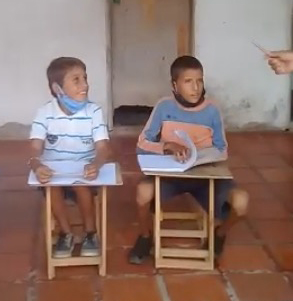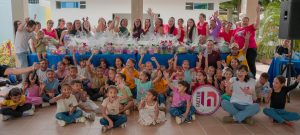The current objective of this educational intervention is to standardize the learning of children at risk of HD not enrolled in school so that they can be inserted or reinserted into the official formal educational structure. We began this program in 2020 and following a short discontinuation due to the covid-19 pandemic, we continue this project in Barranquitas, Venezuela, for now.
Barranquitas is a small fishing village of about 10,000 inhabitants, located in the western area of Lake Maracaibo, where about 90% of the population, live in extreme vulnerability. Barranquitas has become known worldwide for being the focus of study that resulted in the identification of the gene responsible for Huntington’s disease (HD) because it has the highest prevalence of HD in the world, with an estimated frequency for 2017 of 3.71%. We believe this number is closer to 10%, with 30% of the entire population at risk to develop the disease.
In mid-2020 and despite the complicated situation resulting from the Covid-19 pandemic, the humanitarian emergency in which Venezuela finds itself and the suspension of school activities, thanks to your donations we began providing interventional education to 10 children between 6 and 12 years of age from the HD community of Barranquitas. To do this, the educational model known in Venezuela as “directed task” was used, which through individualized activities and with the demand and guidance of the teacher, strengthens specific aspects of knowledge.
Starting with a diagnosis of the educational level of each child, between July and December 2020, it was achieved that 100% of the children reached the basic level of reading and mathematical operations. Between January and May 2021, two other (2) children continued to strengthen basic knowledge of literacy and basic mathematics.
Daily and before the activities, the children receive a snack -which in some cases is the only meal of the day-, so that they can be in adequate conditions for learning. All the necessary biosecurity measures were taken: development of activities on a covered terrace, which allows the free circulation of air; hand and face washing by children, before the start of activities; use of antibacterial, use of cloth masks by children and teacher; convenient social distancing.
Starting on September 2021, with the resume of regular school activities in Venezuela, we are rolling out a new school model that will try to reinforce knowledge by the competency model differentiating the set of twelve (12) children, at two levels and it is expected that by the first semester 2022, the first group of children can be incorporated into the formal educational structure after an evaluation.




